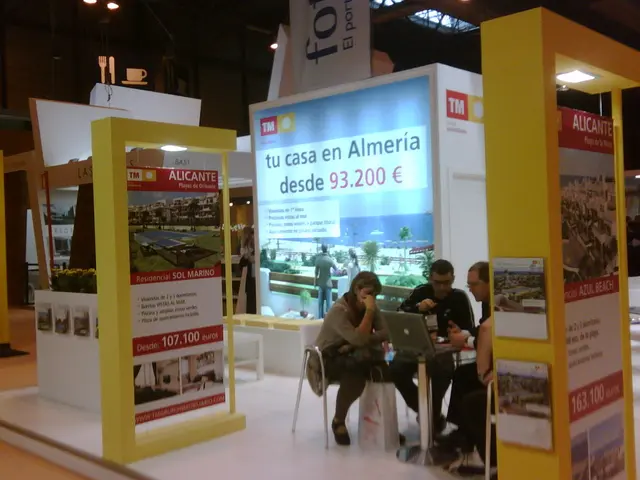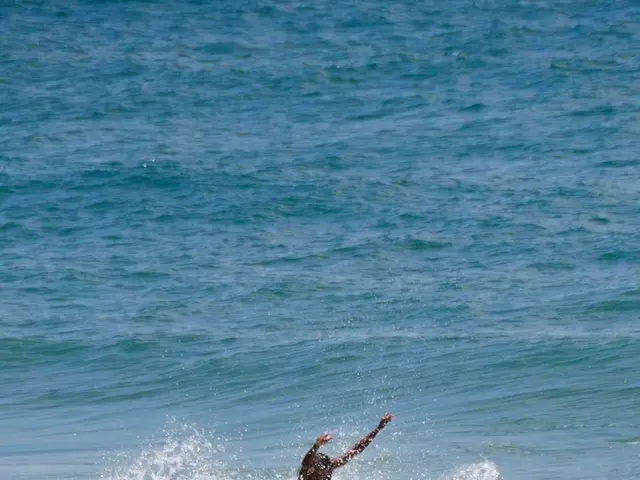Trump welcomes Merz to the White House on a Thursday encounter
Updated News Text
Chancellor Friedrich Merz of Germany will visit Washington on Thursday for his first meeting with President Donald Trump since assuming office. The visit will include a White House conversation, a joint lunch, and a press conference, as announced by government spokesman Stefan Kornelius in Berlin.
This marks the first face-to-face encounter between Merz and Trump, who have only briefly met in New York several years ago. Merz will travel to Washington after an evening dinner with state ministers in Berlin, and he will delegate his role at the ministerial conference on Thursday to Chancellor's Office Chief Thorsten Frei.
During their Washington meeting, the Ukraine conflict, NATO's response to external threats, and the trade dispute between the US and EU are expected to be primary topics of discussion. A significant aspect of the conversation will focus on establishing a harmonious working relationship.
Since taking office, Merz and Trump have spoken on the phone several times in the recent weeks, discussing efforts to end the Ukraine conflict. They have exchanged messages via SMS and have begun addressing each other by their first names, signifying a developing personal rapport.
At the top of the agenda for this meeting will be negotiations regarding ending the war in Ukraine. Merz has been actively engaged in encouraging European unity in this matter but has expressed his frustration at the lack of progress. He is expected to press Trump to intensify pressure on Russian President Vladimir Putin in order to achieve a ceasefire.
The trade dispute between the US and EU is another key topic. While the EU Commission is responsible for ongoing negotiations, Merz's role as the head of Europe's strongest economic power may provide an opportunity to foster cooperation and provide impetus. The deadline for the threatened 50% tariffs by Trump has been extended to July 9.
Another point of discussion during the meeting will be the NATO summit, where the heads of state and government will meet in Brussels at the end of June. Key issues to be discussed include defense spending, which Trump has demanded member states increase to 5% of their GDP. NATO Secretary General Mark Rutte has proposed a compromise formula, suggesting 3.5% for military spending and 1.5% for defense infrastructure such as roads and harbors.
Recent tensions between Merz and US Vice President JD Vance have been caused by Vance's claims that European allies threaten democracy. Merz also rejected criticism from the US government regarding the German domestic intelligence agency's classification of the AfD as a far-right extremist party.
Several heads of state and government have visited Trump since his inauguration, including French President Emmanuel Macron, British Prime Minister Keir Starmer, and Italian Prime Minister Giorgia Meloni. Notable visits included those of Ukrainian President Volodymyr Zelenskyy and South African President Cyril Ramaphosa.
The Chancellor remains calm and composed, having sought advice from leaders who have already met with Trump, such as Zelenskyy, Ramaphosa, Meloni, Norwegian Prime Minister Jonas Gahr Støre, and Finnish President Alexander Stubb. He approaches the conversation with a positive attitude, focusing on common interests and similarities.
- In the context of their upcoming meeting, discussion about food policies and legislations might arise due to the importance of trade agreements, especially regarding the ongoing trade dispute between the US and EU.
- Amidst talks about war-and-conflicts, such as the Ukrainian conflict and NATO's response to external threats, political leaders will also discuss the role of general news in shaping public sentiment and potential outcomes of their negotiations.






